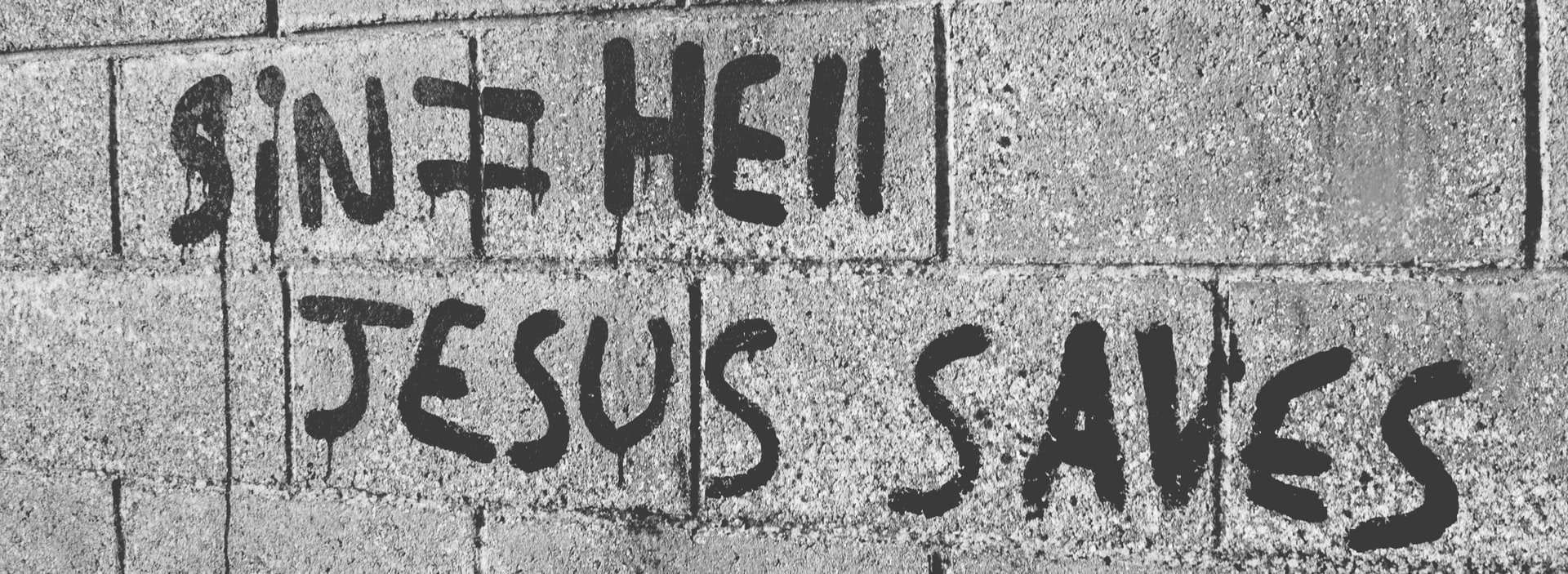
Foundational Question
Does God have a choice when it comes to allowing sin? Couldn’t He just speak sin out of this world, given that God created the universe and everything in it? Why did God allow Sin into the world?
God is All-Powerful
To answer that question honestly, we need to begin with an understanding of who God is. He is:
- Omnipotent – having unlimited power, able to do anything - Genesis 1:1, Job 37:23, Jeremiah 32:17
- Omniscient – knowing everything - Hebrews 4:13, 1 John 3:20b, Psalms 139:4, Psalms 147:5
- Omnipresent – present everywhere at the same time - Psalm 139:7-9, Jeremiah 23:23-24, Deuteronomy 4:39
- For clarity, God’s omnipresence is not the same as Pantheism (God is everything – Hindu/Buddhist). Our God is everywhere, but He is not everything.
- We learn about God in the OT (verses above). We learn about Christ (the second part of the Trinity) and our walk in this world, in the NT.
When Did Sin Start
The sin and evil that we see today in this world, crime, sexual immorality, hate, etc. started a very long time ago before the earth even existed. Before the beginning of time, God created the angels, and the greatest, most powerful among them was Lucifer.
We know Lucifer (an angel) became Satan (a fallen angel). God did not create Lucifer as evil but created him as the highest angel in His army. Lucifer choose to turn to evil, and God allowed it…
Lucifer’s Fall in Scripture
- God, refers to Lucifer becoming Satan when Lucifer choose to sin… - Isa 14:13-15
- Satan’s sin was pride. He wanted to be more than just the highest of angels. He wanted to be like God. - Ezk 28:12b-17
So, back in the beginning of time, if God had the power and authority to do away with sin, and He loves us, and unrepentant sin will send us to Hell for eternity, why didn’t God stop Lucifer and his demons (the fallen angels who represent Satan’s army) from sinning?
Simply put, God allowed sin to enter Lucifer, who then became Satan because God allowed him to make a free-will decision. Lucifer’s pride became the first evil to enter God’s perfect creation. When Lucifer, now Satan, fell into sin, he brought a third of the angels down with him.
Mankind’s Fall into Sin
Sin entered our world and mankind through Adam (Romans 5:12). He was the first human sinner. Yet we know God loves us (1 John 4:8), even while we remain sinners (James 4:17). Further, we know that unrepentant sinners go to Hell for eternity (Matthew 25:46). Yet many understandably believe God wishes none of us to perish in Hell for eternity (2 Peter 3:9). How can we reconcile all this?
To begin with, why didn’t God stop Satan from enticing Adam and Eve to eat the forbidden fruit (likely not an apple) if God both knew and had the power to stop him? And, perhaps more importantly, why does God continue to allow us to sin today (Romans 3:23)?
Predestination vs. Free-Will
There is an overriding factor beyond God’s sovereignty and love for mankind at work.
Adam and Eve listened to the serpent (Satan) in the Garden. They were driven by the same desire that Lucifer was... to be like God (Genesis 3:5). God knew what they were going to do, but still gave them the free-will choice to eat the forbidden fruit. I think God does the same thing for us today. He gives us the free-will to make a decision to either do the right thing or the wrong thing. But does that mean God is no longer in control? Can God’s sovereignty and our free-will coexist?
What about Scripture passages that clearly state that everything is under the control of God, which is Predestination? Proverbs 19:21 states that, “many are the plans in a man’s heart, but it is the Lord’s purpose that prevails.”
Many theologians believe that Free-Will and Predestination are opposite ends of the theological spectrum. Folks have to land on one side or the other. The challenge is that both concepts are represented numerous places in Scripture.
- Free-will can be defined as – the ability to act at one’s own discretion (John 7:17)..
- Predestination can be defined as – all events have been determined by God, especially Salvation (John 6:44, Romans 8:29-30).
Many argue predestination is incompatible with free-will such that God can’t allow both. It should be said that this controversy between Predestination and Free-Will has been raging in Christian circles for many years.
The Answer
Using Scripture and a bit of common sense, let me offer an answer to the paradox of why God allows sin and how one reconciles predestination with free-will.
In the parable of the Laborers in the Vineyard, the master of the house paid his laborers the same amount regardless of how long they worked. Jesus explained in Matthew 20:15 the sovereign right God has to make His own decisions on fairness by saying, “Am I not allowed to do what I choose with what belongs to me? Or do you begrudge my generosity?”
In the same way, (which was Jesus' point in the above passage), God has the right to choose when to interject His will into our lives, and when He chooses not to. In the case of most things we do, often (but not always), we have no idea when we are operating under free-will and when we are being directed by God. When it comes to Salvation however, I think God has to always drag us kicking and screaming to the cross (Predestination).
My street theology is that God often allows us to make free-will decisions because God desires us to love him and love can only come from an individual's free will. If God directed every decision we made throughout life, where would our desire to love Him come from. We would be nothing more that automatons (robots). What would be the point of prayer or witnessing to others, etc?
However, just because God knows everything each of us will do or think well before we do or think it (omniscience and omnipresence), and He has the power to change anything He wants (omnipotent), that does not mean He will always choose to do so. However, I believe there is at least one significant exception to God's willingness to allow our free-will.
Salvation
I believe, as sinners, if given a choice, we would never repent and accept God (Christ) as our Savior and our Lord. I believe in this case God, through the Holy Spirit, overcomes our natural sin nature and drags us kicking and screaming to the cross (as we acknowledge our sin, ask Him to save us, and accept Him as Lord of our lives).
There are many verses in Scripture which support this position.
- Romans 8:29 For those God foreknew he also predestined to be conformed to the likeness of his Son, that he might be the firstborn among many brothers.
- Ephesians 1:4 For he chose us in him before the creation of the world to be holy and blameless in his sight. In love
- John 6:44 “No one can come to me unless the Father who sent me draws him, and I will raise him up at the last day.
This concept that God has already decided who will be saved and who will be lost can lead to a feeling that there is no need to share our faith as Biblical Christians.
Summary
So the question we started with was, "why does God allow sin"?
The answer is because it is necessary to perfect His will over mankind, which is to allow us to love and honor Him. Sin and evil are necessary to show the opposite - our love for God and His love for us (Romans 5:8). I don't think Adam and Eve understood the concept of love before the fall. Free-will is not really free if there are no good vs. bad choices. In Heaven, we will be without sin, but we will have a memory of it and how God offered us his Son as payment for our sins.
Read the full article

